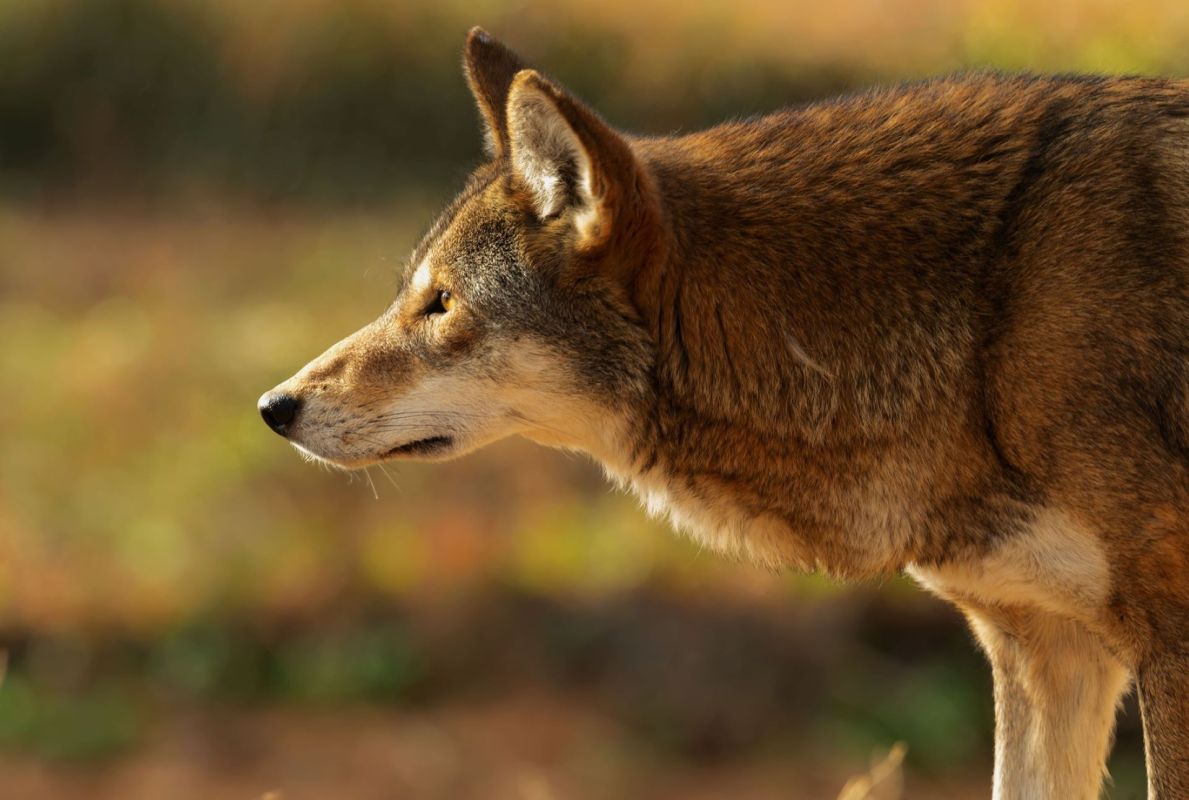Cue Shakira, because in exciting wolf conservation news, ABC11 North Carolina announced that two families of the critically endangered red wolf have been released into the wild.
The Red Wolf Recovery Program shared a video of the wolves on its Facebook page with an announcement of their release into the Pocosin Lakes National Wildlife Refuge in Eastern North Carolina, calling it a "continuation of collaborative conservation."
According to the Association of Zoos & Aquariums, the species once populated the Southeastern United States, but habitat loss and overhunting decimated the population; the wolf was listed as endangered in 1973.
The U.S. Fish and Wildlife Service captured the few remaining wolves to launch breeding programs at zoos, an effort that made the wolves functionally extinct in the wild.
The red wolf is the most endangered wolf in the world, and their recovery effort was the first reintroduction of a large carnivore in human history. The first release back into the wild in North Carolina occurred in the late 1980s, and despite its early success and population growth to 150, numbers dipped dangerously again, leaving only about 20.
This rewilding conservation strategy is critical not only for the survival of the species, but also for that of the entire ecosystem.
The American red wolf is a keystone species in North Carolina, so the plants and animals in that region depend on them for their own survival. The wolves help curb the spread of disease and keep the prey populations like that of deer in check, stopping them from overgrazing the habitat that many species rely on. The wolves may also limit the populations of species that can cause damage to crops, according to the National Wildlife Federation.
The hope of all involved is that the red wolves continue to raise their families in the general areas and increase the wolves' numbers.
Mark Cross, executive director of the Endangered Wolf Center, said: "American red wolves are the only large carnivore species solely native to the USA. Just like the bald eagle, the American red wolf is a national treasure we must save."
He told the AZA: "Restoring damaged ecosystems in America's remaining wild places is so crucial right now. By reintroducing native animals like the American red wolf, we have the potential to dramatically improve the balance and biodiversity that we so desperately need."
Join our free newsletter for cool news and cool tips that make it easy to help yourself while helping the planet.









